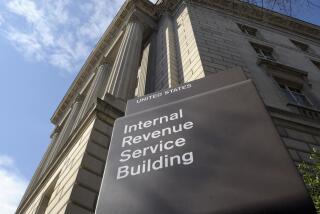Can heir avoid capital gains taxes on sale of parents’ home?
Dear Liz: My wife and her brother are selling their parents’ home. The parents transferred the deed to their children’s names years ago. My wife should receive about $85,000 from the sale. Our yearly income (one salary; she’s a stay-at-home mom) is around $75,000. My wife is worried about capital gains taxes and wants to reinvest in another real estate property because she’s heard that that will eliminate the capital gains tax. Is that correct? I would really rather invest that money in our current home (finish the basement into a family room, update some items) and pay off our car loan than worry about another property to take care of. What do you think?
Answer: A 1031 exchange is a tax maneuver that allows owners of business or investment property to swap the real estate they have with another property, a transaction that can defer (but not necessarily eliminate) capital gains taxes.
It’s questionable whether your in-laws’ home would qualify as business or investment property, said Mark Luscombe, principal federal tax analyst for tax research firm CCH.
“Were the parents paying rent to the children after the title was passed to the children? If the kids owned the property and the parents were living there without paying rent, I do not think that would constitute investment property,” Luscombe said. “Perhaps if the parents were still paying upkeep expenses and real estate taxes, that might approach the equivalence of rent.”
If there’s a chance the property might qualify, your wife should consult a tax pro experienced with 1031 exchanges for details. Otherwise, she’ll need to write some good-sized checks to the tax authorities. Currently the federal capital gains tax rate is a maximum of 15%, although it will rise to 20% on Jan. 1 if Congress doesn’t reach a compromise on the so-called fiscal cliff. Add to that any state or local taxes on capital gains.
You may think of these taxes as a small price to pay compared with the risk of owning a piece of rental property. Your wife may have another concern that she has not voiced, however: She may not want this legacy from her parents to disappear into the general family budget. She may feel an obligation to preserve and try to grow the money, rather than sinking it into home improvements and other consumption. Legally, gifts and inheritances are considered separate property owned only by the spouse to whom they were given, even in community property states where most other assets are considered jointly owned.
If she wants to keep this money separate, in other words, that’s her right. It would be nice if she carved out a small chunk for family consumption, but she’s under no obligation to do so. If a 1031 exchange isn’t possible or feasible, then she could consult a fee-only planner about other ways to invest the money for the future.
By the way, it needs to be said: This tax bill was avoidable. If your in-laws had, instead of gifting the property, waited and bequeathed it at their deaths, the home would have received a so-called step-up in tax basis. Such a step-up in effect eliminates the need to pay capital gains taxes on any home price appreciation that occurred during the parents’ lives. Any parent thinking of adding a child’s name to a real estate deed should first consult an estate planning attorney to understand the ramifications, since gifting property this way can be an expensive mistake.
Paying back student loans
Dear Liz: I read your response to the person questioning the rationale behind taxpayer-supported federal student loans. Your response was well written, but do you have any information about how much money is owed to the government for student loans and what percentage of all the loans are actually paid back in full? You mentioned that the government can garnish wages and Social Security checks and seize tax refunds, but does the government follow through and hold these people accountable? Does the government have personnel to do this or is this just a threat?
Answer: Millions of unhappy student loan borrowers can assure you the government’s considerable powers to collect defaulted student loans are much more than a threat. In addition to its own collection activities, the U.S. Department of Education also hires a number of private collection agencies to help recoup what’s owed.
As a result, the government collects more than 100 cents on every defaulted dollar once accumulated interest and penalties are included, according to the Education Department’s most recent report. On a net present value basis — when future collections are discounted back to today’s dollars — the government recovers about 80% of the defaulted debt.
Decades ago, it was possible to skip out on federal student loan debt without serious consequences. Public outrage over that fact led to much stronger collection efforts. That has resulted in the federal government recovering about $10 billion in defaulted student loan debt every year, said Mark Kantrowitz, publisher of the FinAid.org and FastWeb financial aid sites.
Questions may be sent to 3940 Laurel Canyon, No. 238, Studio City, CA 91604 or by using the “Contact” form at asklizweston.com. Distributed by No More Red Inc.






